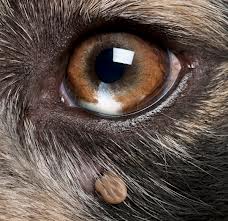|
 |
|
|
|
|
|
|
|
|
|
|
|
|
|
|
|
|
|
|
|
|
|
|
|
|
|
|
|
|
|
|
 |
|
|
|
|
|
|
|
|
|
|
|
|
|
|
|
|
|
|
|
|
|
 |
|
|
|
|
Vet and partner
Michelle
Silvera BVMS MRCVS
Will be adding
regular updates on important developments, news and advice to help keep
you informed and your pets in good health.
If you would
like extra information on any of the subjects please contact the practice.
reception@cameronandgreigvets.co.uk
|
|
|
|
|
|
|
|
|
|
|
|
|
|
|
|
|
|
|
|
|
|
|
|
|
|
|
|
|
|
|
|
|
|
|
|
|
|
Ticks
Ticks are generally
found in rural areas. They lie and wait in vegetation, and attach to dogs
or cats as they brush past. Once attached to the animal, they pierce a hole
in the skin and feed on blood. This can cause local irritation, and in young
animals, a severe infestation may cause anaemia.
The highest risk associated with ticks are the diseases they can transmit.
(Lyme disease in the UK and Ireland)
Diseases such as Babesiosis and Ehrlichiosis, can be transmitted via ticks
in foreign countries, therefore regular tick treatment for pets travelling
abroad is important. |
|
|
|
|
 |
|
|
|
|
|
|
|
|
|
|
|
 |
|
|
|
|
|
|
|
|
|
|
|
|
What
can I do if my pet is affected?
Regularly examine
and groom your pet.
Ticks can be removed safely using a tick remover - it is not advisable to
pull the tick off, as this can result in the mouth/head part of the tick
remaining embedded in the skin, which can then cause further problems. Tick
removers are available at any of our surgeries, or an appointment can be
made for the vet to remove the tick from your pet.
Preventative treatment is available, which can repel or prevent the tick
from attaching in the first place, or will kill any attached ticks. This
comes in the form of spot-on treatments, which need to be re-applied every
4 weeks or a fitted collar lasting for up to 8 months. |
|
|
|
|
|
|
|
|
|
|
|
|
|
|
|
|
|
|
|
|
|
Protect
your Pets against Lungworm Lungworm
(Angiostrongylus Vasorum) or French Heart Worm as it
is also called, is a parasite that infects dogs and foxes. The adult lives
in the heart and its surrounding blood vessels, particularly those supplying
the lungs. Lungworm is carried by slugs and snails, which can be ingested
by pets. Infected dogs can become quite unwell with a variety of clinical
signs and also play a part in the lifecycle and spread of the disease. Regular
wormers do not treat or prevent lungworm. However it is easily treated and
prevented by application of a specific spot-on, which you can buy from your
Vet. The parasite and hence the disease, is becoming quite prevalent in
this area and we have had several confirmed cases, with many more suspected.
|
|
|
|
|
|
|
|
|
|
|
Case
History
"Jude", a 4-year-old working Labrador was brought into Cameron
and Greig with a sudden onset pneumonic chest and high temperature. She
was very unwell and was hospitalised immediately. Jude was given antibiotics
along with anti-inflammatory treatment and improved quite rapidly, although
she developed a chronic cough over the following week.
Jude was
later admitted for endoscopy and radiography, which confirmed the presence
of lungworm (Angiostrongylus Vasorum). Worms were seen in her windpipe
and she was given the specific spot-on treatment. Jude has since made
a full recovery, and returned to work before the end of the shooting season.
|
|
|
|
|
|
 |
|
|
|
|
|
|
|
|
|
|
|